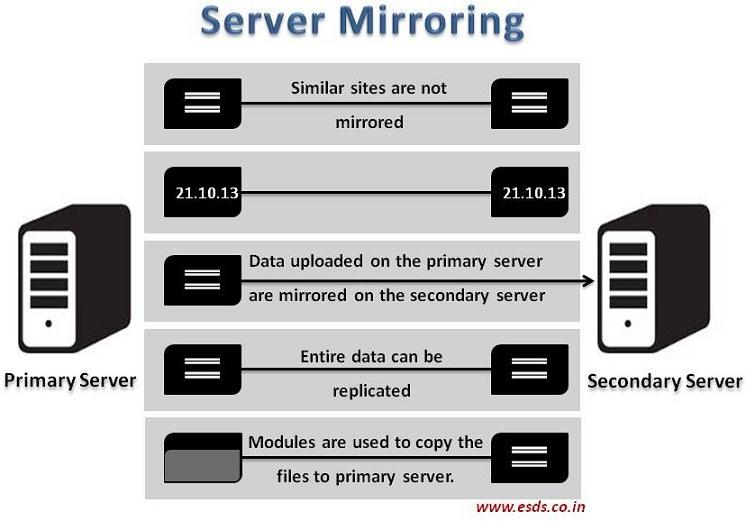Benefits of Server Mirroring
The term Mirror, as we all know, is something which has a reflective surface or which shows an identical image. In Datacenter industry also, this delineation is applied to servers and databases / applications for attaining the fault tolerances of the machines. It includes operating a back-up server that replicates all the activities and transactions of the main server. In this scenario, every single server engaged in the set-up is mirrored with another machine with similar specs that can be used to run in case the primary machine fails. This is done by using various modules, for Windows; Robocopy, Syncrify, R1soft or ViceVersa PRO can be used whereas for Linux Rsync & FAM can be used. When the data gets uploaded to the primary storage disk, it is also concurrently written to a secondary disk to protect from disk failures and data loss.

Techies today consider it as a very expensive solution, however server mirroring has its own benefits that are unique and important:
No interruption: As server mirroring involves the replication of the every single servers, it involves less downtime. If in case any machine crashes, it recovers the data immediately onto the secondary server which results hardly any downtime. This is why server mirroring is considered by top companies who cannot afford a single minute of downtime.
Reliable Solution: Organisations can be highly confident that their infrastructure and devices are secured and can save them from failures and downtime. Server mirroring offers maximum assurances that the servers are being continuously protected from man-made or technical errors. In case any of the servers crashes or is hacked, the other server can continue to function normally.
Quick data recovery: Recovery method requires the selection of the source, target, and the suitable duplication set. User doesn’t need to select files or to remember where the data came from on the source since that data is maintained by Rsync. Therefore, server mirroring offers a quick data recovery and supports to maintain uptime.
Flexible Structure: With a standard server mirroring solution, users can increase/decrease the resources anytime adding that they would need to add similar resources to the secondary server. Hence the set-up doesn’t have to work on a fixed structure, but it can be customised as per the environments.
Global Accessibility: In case the server is hosted in India and is mirrored in UK, the target audience based in UK have an advantage of better speed and since the sum of downloaders is cut down into two pieces (Indian & UK servers), their download speeds can be faster.